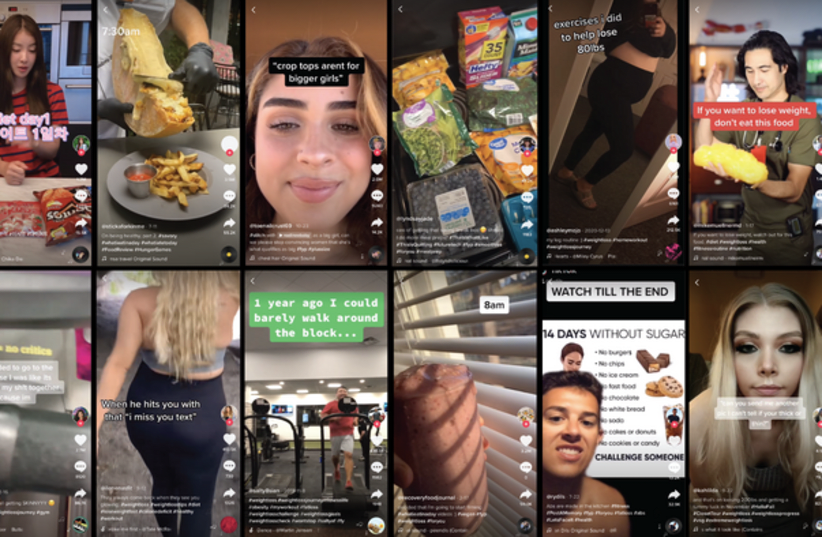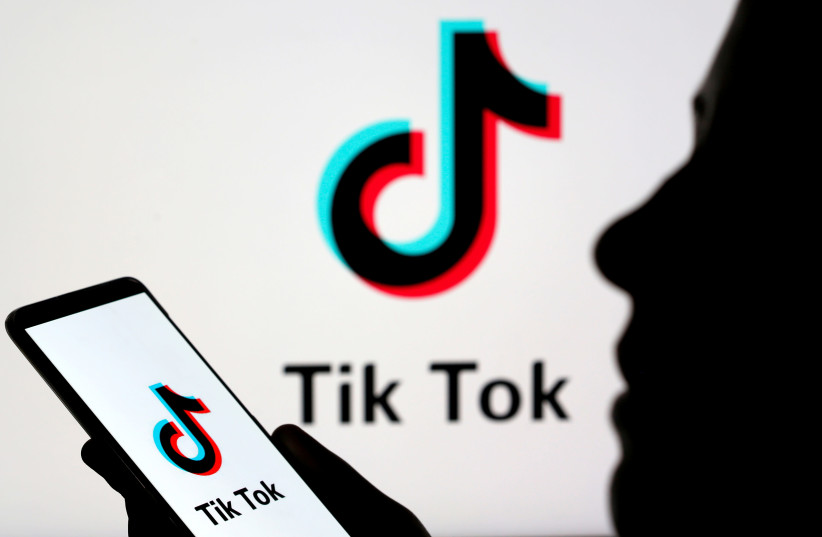TikTok – a short-form video hosting service owned by a Chinese company that promotes dance, pranks, stunts, tricks, jokes and entertainment lasting between 15 seconds and 10 minutes – has become incredibly popular among adolescents and young adults around the world, including many in Israel. It was even ranked as the most popular website of 2021, surpassing Google.
Although many of the pranks are dangerous, stupid or demeaning, the effect TikTok has on the eating habits of their viewers is much more dangerous, according to new research at the University of Vermont. It “perpetuates a toxic diet culture among teens and young adults,” wrote Prof. Lizzy Pope, director of the university’s Didactic Program in Dietetics.
Writing in the journal online PLOS One under the title “Weight-normative messaging predominates on TikTok – A qualitative content analysis,” Pope said that “food, nutrition and weight-related posts are popular on TikTok, yet there is little understanding of the content of these posts and whether nutrition-related content is presented by experts.”
“Food, nutrition, and weight-related posts are popular on TikTok, yet there is little understanding of the content of these posts and whether nutrition-related content is presented by experts.”
Prof. Lizzy Pope
Studying 1,000 food and weight-related viral TikTok videos
She and her colleague Marisa Minadeo studied 1,000 TikTok videos from 10 popular nutrition, food and weight-related hashtags – each with over a billion views. The 100 most-viewed videos were downloaded from each of the 10 chosen hashtags, and then each video was coded for key themes, many of which included the glorification of weight loss, the limitation of food to achieve “health” and thinness, and the lack of expert voices providing factual information. The majority of posts presented a weight-normative view of health, with fewer than three percent coded as weight-inclusive.
Most posts were created by white, female adolescents and young adults. Food-related content on the social media giant, said the researchers, “may contribute to disordered-eating behaviors and a negative body image in the young people that are TikTok’s predominant users. Helping users discern credible nutrition information and eliminate triggering content from their social media feeds may be strategies to address the weight-normative social media content that is so prevalent.”
Just like people are different heights, “we all have different weights,” Pope said. “Weight-inclusive nutrition is really the only just way to look at humanity… Each day, millions of teens and young adults are being fed content on TikTok that paints a very unrealistic and inaccurate picture of food, nutrition and health. It can be a really tough environment, especially for the main users of the platform, who are young people.”
The dietetics expert said that “we have to help young people develop critical thinking skills and their own body image outside of social media. But what we really need is a radical rethinking of how we relate to our bodies, to food and to health. This is truly about changing the systems around us so that people can live productive, happy and healthy lives.”
The study is the first to examine nutrition and body image-related content at scale – the required size to get a correct answer. “We were continuously surprised by how prevalent the topic of weight was on TikTok. The fact that billions of people were viewing content about weight on the Internet says a lot about the role diet culture plays in our society,” said Minadeo, who conducted the research as part of her undergraduate thesis at the university.

